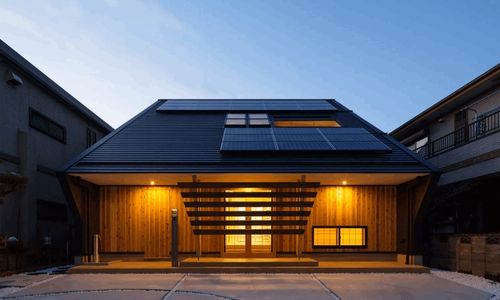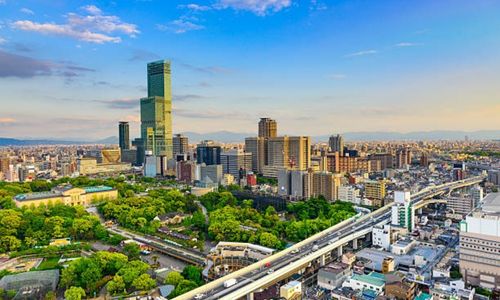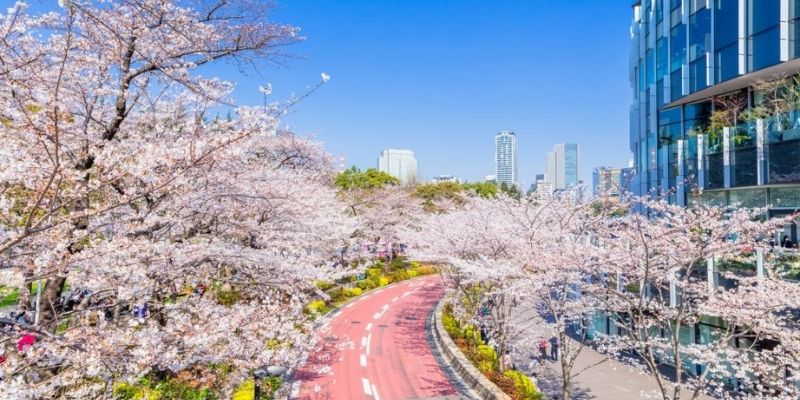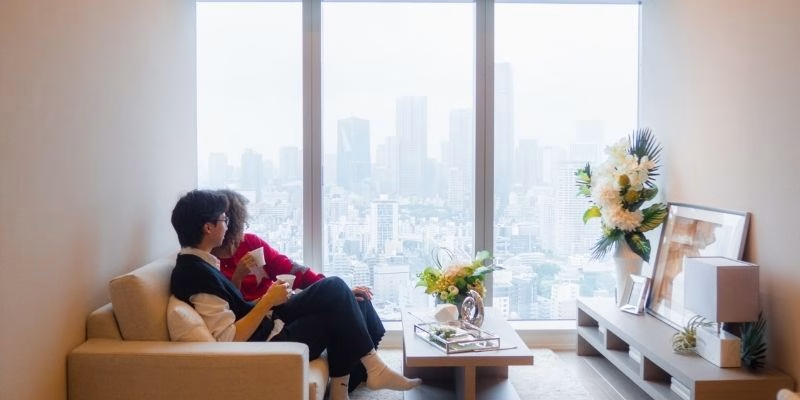Planning to Buy an Apartment in Tokyo? The city offers stable growth, clear legal processes, and a wide range of properties for every lifestyle and budget. Whether you’re after a high-end condo or a practical family home, Arealty can guide you through the entire buying journey. Visit Arealty.jp for expert support and trusted listings.
Why Invest in Tokyo Real Estate?
Tokyo’s real estate market is increasingly drawing attention from both domestic and international investors thanks to its compelling advantages. As the world’s second-largest urban economy, Tokyo offers a resilient property sector with strong growth prospects fueled in part by ongoing urban redevelopment projects that have steadily pushed property values upward.
In addition, a weak yen and home loan interest rates below 2% make it financially attractive for foreign buyers to enter the market. Japan places no legal restrictions on foreign ownership, and the process is transparent, with no requirement for a residency visa.
High rental demand from locals, expats, and tourists helps maintain solid rental yields, typically ranging from 3% to 5%. Tokyo’s world-class infrastructure, efficient public transit, and high safety standards further reinforce its long-term investment appeal. Major institutional players are also channeling significant capital into the city, signalling strong confidence in its future appreciation potential.
Investing in Tokyo not only provides stable returns but also serves as an effective way to diversify portfolios and hedge against inflation. Altogether, these strengths make Tokyo a top-tier destination for those seeking a secure, profitable, and future-proof real estate investment.

Future-ready homes in Tokyo’s heart
Types of Apartments and Condos Available in Tokyo
Tokyo’s housing market offers a wide variety of living options tailored to different needs, budgets, and lifestyles. Whether you’re relocating for work, studying abroad, or investing in property, understanding the available apartment types is essential to making the right choice.
Main Building Types
- Apato (アパート): These are typically two-story buildings constructed from wood or lightweight steel. Known for their affordability, they’re a common option in quieter residential zones, particularly among students and singles. However, they often lack sound insulation and advanced facilities.
- Mansion (マンション): In Japan, “mansions” refer to modern, multi-story condominiums built from reinforced concrete. These buildings often include features such as elevators, security systems, and better soundproofing. They’re ideal for long-term residents or buyers seeking added comfort and safety.
Apartment Layouts
Japanese apartments are often described using abbreviations that denote the number and type of rooms:
- 1R (One Room): Studio-style space combining living, sleeping, and kitchen areas into a single room.
- 1K: A compact unit featuring a single main room and a separate, enclosed kitchen area, ideal for solo living with added cooking privacy.
- 1DK: A layout featuring one room plus a combined dining and kitchen area.
- 1LDK: Includes a living room, dining area, kitchen, and a separate bedroom.
- 2LDK / 3LDK+: Two or more bedrooms with a full living, dining, and kitchen setup, ideal for couples or families.
Additional Living Options
Beyond typical apartments, Tokyo also offers flexible living options to suit different lifestyles and budgets.
- Danchi: Public housing complexes developed by the government. While older in structure, many have been refurbished and offer affordable rent in family-friendly environments.
- Share Houses: Popular with young adults, share houses provide private rooms with communal kitchens and bathrooms, a great way to save costs and meet new people.
- Serviced Apartments: Fully furnished units designed for short- to mid-term stays. These are perfect for expats, business travellers, or those in transition.
Top Places to Purchase an Apartment in Tokyo
Tokyo is home to a variety of neighbourhoods, each offering distinct advantages for buyers. Whether you’re investing or planning to live long-term, these areas stand out in 2025:
- Minato – Known for its luxury condos, international community, and landmark developments like Azabudai Hills. Ideal for upscale living and strong resale value.
- Shibuya – A creative and tech-forward district with large-scale urban upgrades. Great for buyers seeking energy, innovation, and future growth.
- Chiyoda – Tokyo’s political and financial core, featuring exclusive residences near the Imperial Palace. Best suited for those who value prestige and central access.
- Shinjuku – A major transit and business hub with diverse property options, from modern towers to residential pockets.
- Setagaya – A peaceful, family-friendly area known for green spaces, schools, and stylish low-rise living.
Each area offers something unique, from high-end appeal to affordability and future upside. Define your lifestyle and investment goals to find the right match in Tokyo’s vibrant property landscape.
New vs. Resale Condos: What’s the Difference?
When entering Tokyo’s property market, one of the key choices you’ll face is whether to purchase a newly built condominium or opt for an existing unit. Each type offers its advantages and considerations, depending on your lifestyle needs, location preferences, and investment goals.
|
Aspect |
New Condos |
Resale Condos |
|
Upfront Cost |
Generally, more expensive due to modern finishes and new infrastructure |
Typically lower price point, offering better value for money |
|
Location Availability |
Often located in developing or outer-city areas |
Commonly found in central, well-established neighbourhoods |
|
Condition |
Brand-new with the latest design and smart features |
May require renovation or maintenance depending on age |
|
Design Flexibility |
Some customisation is possible before construction completes |
Layouts are fixed; only minor changes can be made post-purchase |
|
Move-in Timeline |
May involve waiting until the building is completed |
Commonly available for prompt possession |
|
Builder Warranty |
Includes structural and system guarantees, usually up to 10 years |
Coverage varies; older properties may not include any guarantees |
|
Earthquake Safety |
Built under updated seismic standards |
Older units may lack modern earthquake-resistant construction |
|
Long-term Potential |
High-quality builds may retain value well over time |
Lower entry cost, but appreciation depends on location and condition |
Choosing between a new build and a resale condo comes down to your personal goals. New units provide the comfort of modern design, efficiency, and warranties but at a premium and often farther from city centres. Resale properties, on the other hand, offer affordability and prime location access, though they may involve extra maintenance. Evaluating your budget, timeline, and lifestyle will help determine which option is right for you in Tokyo’s fast-moving property market.
Step-by-Step Guide: How to Buy an Apartment in Tokyo as a Foreigner
Purchasing property in Tokyo is entirely possible for non-Japanese buyers, thanks to Japan’s open real estate laws and transparent transaction process. If you’re considering investing in a condo or apartment in the capital, here’s a streamlined overview to help you navigate each stage with confidence.
- Step 1: Kick Off Your Home Search in Tokyo. Begin by exploring listings on trusted platforms such as RealEstateJapan, Suumo, or Homes.co.jp. Partnering with a bilingual real estate agent who understands the needs of international clients can make the process smoother and more efficient.
- Step 2: Collect the Essential Legal Documents. If you are a resident in Japan, prepare your residence card (Zairyu Card), certificate of residence (Juminhyo), and personal seal (Hanko) with its registration certificate. For overseas buyers, a valid passport and a notarised affidavit of signature are typically required.
- Step 3: Submit a Purchase Offer and Pay the Deposit. Once you’ve found the right apartment, you’ll submit a formal offer and pay a deposit, generally between 5% and 10% of the purchase price, to secure the property.
- Step 4: Review and Sign the Sales Contract. A legal agreement (Keiyaku Sho) is drafted to outline the terms of the purchase. It’s highly recommended to have it reviewed by a legal advisor before signing, especially if you are not fluent in Japanese.
- Step 5: Final Payment and Title Transfer. Complete the remaining payment and proceed with the ownership registration at the local Legal Affairs Bureau. This officially records your name as the new owner of the apartment.
- Step 6: Notify the Bank of Japan (for Non-Residents). If you’re not residing in Japan, you must notify the Bank of Japan within 20 days of the transaction, as required under the Foreign Exchange and Foreign Trade Act.
- Step 7: Set Up Utilities and Property Services. After taking possession, register utilities such as electricity, water, gas, and internet. If you won’t live in the property full-time, consider hiring a property management company to handle maintenance and leasing.
Legal Process and Documents Needed for Foreign Buyers
Foreigners can legally buy real estate in Japan without citizenship or residency. However, owning property doesn’t grant a visa. The process is clear, but it’s important to prepare the right documents.
Non-residents typically need a valid passport and a notarised affidavit confirming identity and signature. If you’re living in Japan, you’ll need your residence card (Zairyu Card), certificate of residence (Juminhyo), and a registered seal (Hanko) with proof of registration.
After selecting a property and submitting an offer with a deposit (5–10%), both parties sign a sales contract. A legal review is recommended before finalising. Once the remaining balance is paid, the title is officially registered at the Legal Affairs Bureau.
If you’re not a resident, you must notify the Bank of Japan within 20 days after the purchase. Buyers should also budget for taxes, registration fees, and optional property management if not living in Japan. With proper preparation, purchasing an apartment in Tokyo as a foreigner is straightforward and secure.

Secure Tokyo homeownership for foreigners
Cost Breakdown: From Property Price to Closing Fees
The actual amount you spend on an apartment in Tokyo isn’t limited to the sale price. In most cases, buyers need to account for 6% to 10% in additional expenses. These closing fees typically include taxes such as stamp duty, ownership registration, and acquisition tax, along with service charges like agent commissions and scrivener costs. Annual obligations like fixed asset tax and urban planning tax may also apply.
For financed purchases, mortgage-related fees and loan handling charges further increase the total. For example, a property worth ¥50 million may incur ¥6–7 million in extra costs. Being fully informed helps you plan and avoid financial surprises.

Plan for hidden property purchase fees
Tips to Choose the Right Condo or Apartment in Tokyo
To find the right home in Tokyo, start by setting a clear budget and factoring in hidden costs like taxes and maintenance fees. Location matters, central areas offer convenience, while outer wards provide more space and quiet. Choose between a condo with modern features or a simpler apartment, depending on your lifestyle.
Check the building’s age, structure, and management quality. If you’re buying, consider future resale potential and understand Japan’s legal process for property ownership. With careful planning, you’ll find a home that matches both your needs and investment goals.

Find your ideal Tokyo home smartly
What You Need to Know Before Buying Real Estate in Tokyo
- Are foreigners allowed to buy real estate in Japan?
Yes, international buyers are fully permitted to purchase property in Japan. Foreign nationals enjoy the same legal ownership rights as Japanese citizens, and there are no special permits or residency conditions required to complete a transaction.
- Does buying property qualify you for a visa or residency?
No, purchasing a home or condo in Japan does not provide any immigration benefits. Those wishing to live in Japan must apply through standard visa channels, separate from real estate ownership.
- What paperwork is required for non-Japanese buyers?
If you’re not a resident, you’ll typically need a valid passport along with a notarised statement verifying your identity and signature. Foreigners residing in Japan may also need to provide a residence card (Zairyu Card), a certificate of residence (Juminhyo), and a registered seal (Hanko).
- Is it possible for foreigners to get a home loan in Japan?
Yes, although navigating the process may require extra effort. Most banks require the borrower to have permanent residency or long-term status, consistent income earned in Japan, and sometimes a guarantor who resides in the country.
Conclusion
In 2025, Tokyo will remain one of the most attractive real estate markets in Asia, offering stability, variety, and long-term value. Whether you’re seeking a place to live or a smart investment, now is the perfect time to buy an Apartment in Tokyo. With expert support from An Lac, the process is simpler, faster, and more secure than ever.






Leave a Reply